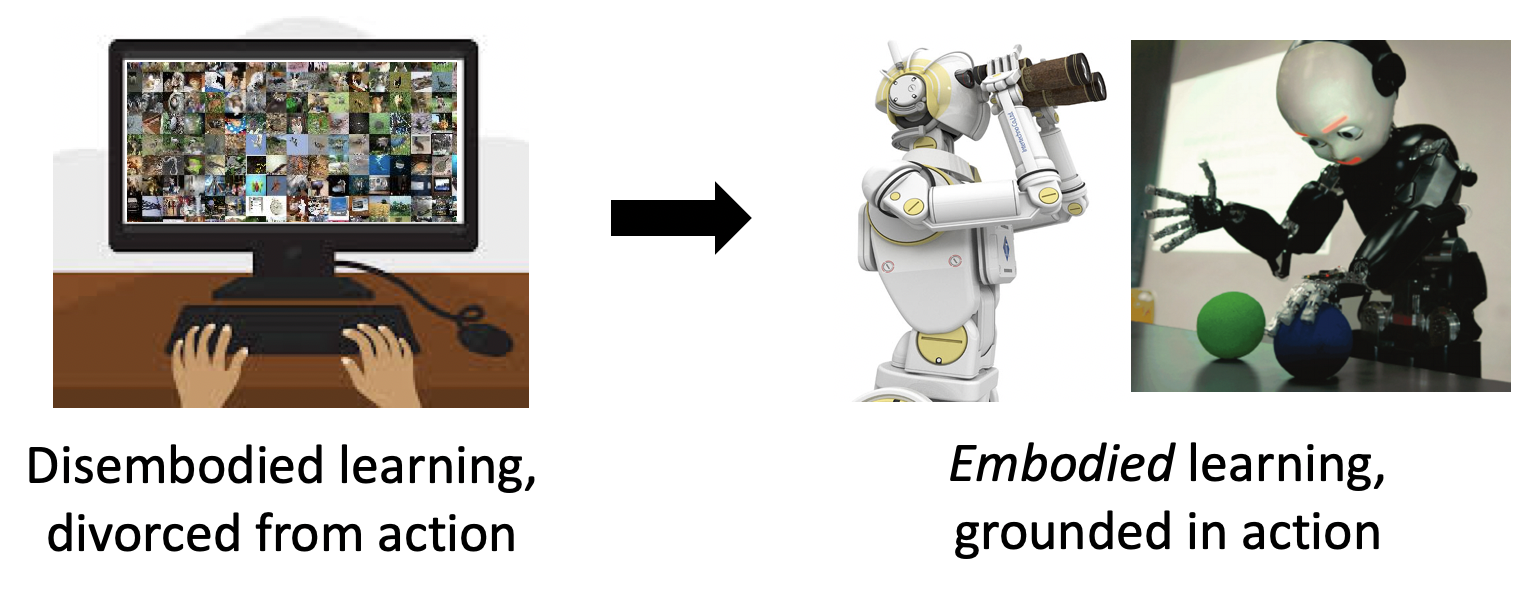
Towards Embodied Visual Intelligence
Description
What would it mean for a machine to see the world? Computer vision has recently made great progress on problems such as finding categories of objects and scenes, and poses of people in images. However, studying such tasks in isolated disembodied contexts, divorced from the physical source of their images, is insufficient to build intelligent visual agents. My research focuses on remarrying vision to action in artificial agents as is known to be the case in biological agents. How might vision benefit from the ability to act in the world, and vice versa? Could embodied visual agents teach themselves through interaction and experimentation? Are there actions they might perform to improve their visual perception? How might they construct visual plans to achieve long-term action goals? In my talk, I will set up the context for these questions, and cover some strands of my work addressing them, proposing approaches for self-supervised learning through proprioception, visual prediction for decomposing complex control tasks, and active perception. Finally, I will discuss my long-term vision and directions that I hope to work on in the next several years.
Speaker Bio
Dinesh Jayaraman is a postdoctoral scholar at UC Berkeley. He received his PhD from UT Austin (2017) and B. Tech from IIT Madras (2011). His research interests are broadly in computer vision, robotics, and machine learning. In the last few years, he has worked on visual prediction, active perception, self-supervised visual learning, visuo-tactile robotic manipulation, semantic visual attributes, and zero-shot categorization. He has received an ACCV Best Application Paper Award (2016), a Samsung PhD Fellowship (2016), a UT Austin Graduate Dean's Fellowship (2016), and a Microelectronics and Computer Development Fellowship Award (2011). He has published in and reviewed for conferences and journals in computer vision, machine learning, and robotics, received a CVPR Outstanding Reviewer Award (2016), is as an Area Chair for NeurIPS (2018 & 2019).

